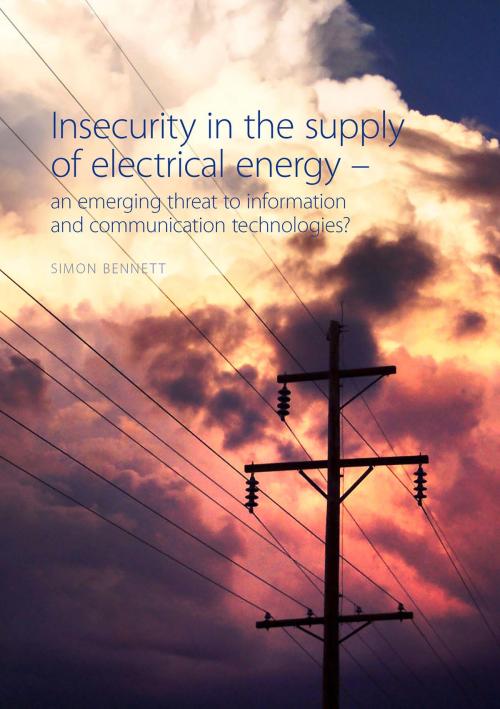Insecurity in the supply of electrical energy
an emerging threat to information and communication technologies?
Nonfiction, Science & Nature, Science, Physics, Energy| Author: | Simon Bennett | ISBN: | 9781907471247 |
| Publisher: | Libri Publishing | Publication: | September 1, 2015 |
| Imprint: | Libri Publishing | Language: | English |
| Author: | Simon Bennett |
| ISBN: | 9781907471247 |
| Publisher: | Libri Publishing |
| Publication: | September 1, 2015 |
| Imprint: | Libri Publishing |
| Language: | English |
This monograph evaluates the consequences for ICT users of failures in the supply of electricity. As demand for electricity grows it is vital that the electricity generating industry expands its capacity. It is also vital that the networks (grids) that deliver that electricity are up to the task. There is talk in Britain of an impending energy gap’ and in the United States of a grid at breaking point. Case studies illustrate the consequences for advanced societies of power outages. It is suggested that even the most comprehensive business continuity plans may be overwhelmed. It is concluded that the best way to secure the ICT systems of both the private and public sectors (including risk, crisis and disaster management ICT) is to maintain a reliable supply of electrical energy. Security of supply would also reduce the burden on crisis management agencies. The private and public sectors must ensure that governments address the energy security issue. Governments must fully meet their public safety responsibilities by investing in resilient power generation and distribution systems. As evidenced by the generally successful response to the world financial crisis of 200810, governments are still the prime movers in maintaining stability. Governments’ empowerment of producers and markets within a de-regulated, laissez-faire world economic system should not be seen as an opportunity to scale-down investment in infrastructure. If the private sector is preoccupied with short-term gain, it is up to governments to invest for the long term (provided, of course, the required legislation can be voted through not easy in coalition governments where parties may hold different views). Reports of the death of the post-war settlement are premature. Keynes’s ideas are relevant still.
This monograph evaluates the consequences for ICT users of failures in the supply of electricity. As demand for electricity grows it is vital that the electricity generating industry expands its capacity. It is also vital that the networks (grids) that deliver that electricity are up to the task. There is talk in Britain of an impending energy gap’ and in the United States of a grid at breaking point. Case studies illustrate the consequences for advanced societies of power outages. It is suggested that even the most comprehensive business continuity plans may be overwhelmed. It is concluded that the best way to secure the ICT systems of both the private and public sectors (including risk, crisis and disaster management ICT) is to maintain a reliable supply of electrical energy. Security of supply would also reduce the burden on crisis management agencies. The private and public sectors must ensure that governments address the energy security issue. Governments must fully meet their public safety responsibilities by investing in resilient power generation and distribution systems. As evidenced by the generally successful response to the world financial crisis of 200810, governments are still the prime movers in maintaining stability. Governments’ empowerment of producers and markets within a de-regulated, laissez-faire world economic system should not be seen as an opportunity to scale-down investment in infrastructure. If the private sector is preoccupied with short-term gain, it is up to governments to invest for the long term (provided, of course, the required legislation can be voted through not easy in coalition governments where parties may hold different views). Reports of the death of the post-war settlement are premature. Keynes’s ideas are relevant still.















